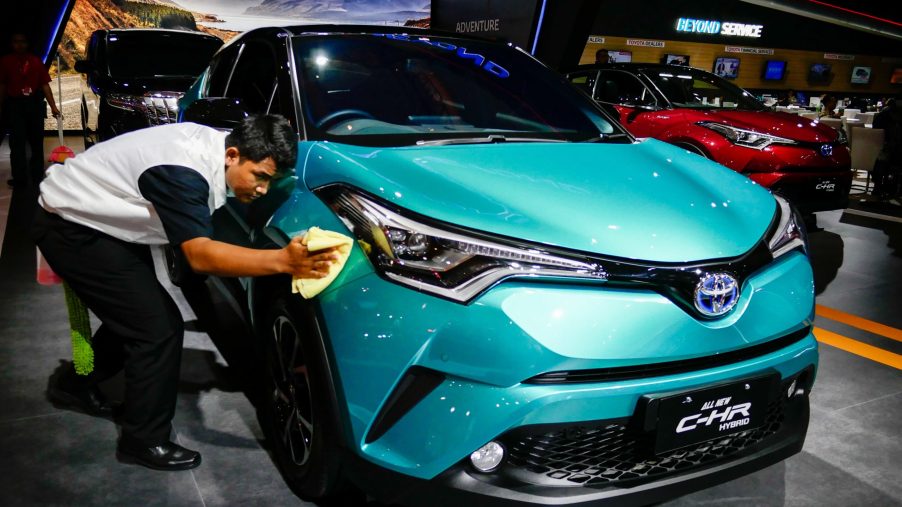
The C-HR Is the Weakest SUV Toyota Offers
Even the most successful automakers sometimes fumble with a vehicle. And despite a roster of top-selling models, the critics will always be quick to point out which is the weakest link. When exploring the portfolio of vehicles in the Toyota fleet, for example, there’s one model that, to many, sticks out as the least favorite contender.
The Toyota C-HR is popular among many consumers. But in an overarching review of what everyone knows Toyota can do, it’s clear; the C-HR is likely the weakest product.
What the reviews share about the 2020 Toyota C-HR
The critics don’t hold back about how they feel about the 2020 Toyota C-HR. The Edmunds reviews cite the crossover’s most significant liability might be its underwhelming engine performance.
They go on to say it might even be one of the slowest vehicles they’ve ever tested. Car and Driver critics despise the cramped back seat and agree about the subcompact SUV being what they call “infuriatingly slow.” They go on to discuss the uninspiring nature of the Toyota C-HR and call this tiny Toyota contender a bore.
A stark contrast to typical Toyota reviews
Since when are there negative reviews about Toyota models? It’s uncharacteristic for any member of the Toyota family of SUVs to see so many unfavorable comments.
In fact, every Toyota SUV made the list of the most reliable SUVs last year. From the RAV4 to the Highlander and 4Runner, the automaker typically enjoys a view from the top of many lists, with a host of rave reviews behind it.
Performance, convenience, and overall value tend to be the strengths behind all of SUVs Toyota produces. Unfortunately, the C-HR isn’t living up to its fullest, Toyota-expected potential among the critic circles.
Why the Toyota C-HR pales in comparison
To be fair, the reviews aren’t entirely wrong. The Toyota C-HR does fall short in a few key areas, including its 2.0-liter, four-cylinder. The engine and performance is the focal point for almost every frustration.
According to Consumer Reports, it’s beyond “tortoise-slow,” and it takes more than 11 seconds to reach 60 mph. Adding insult to injury, and the CVT makes for amplified engine noise.
Other setbacks include the lack of an all-wheel-drive option. After all, shouldn’t all SUVs, regardless of size, at least offer it? The C-HR’s style is unique but also hinders visibility. And its coupe-looking doors can be challenging for children to open.
When compared to other models in this subcompact segment, like the Honda HR-V and the Mazda CX-3, the C-HR really just pales in comparison.
Who is going to love this vehicle?
Just because the critics have made their weakest link selection, doesn’t mean the Toyota C-HR isn’t right for someone. And for anyone who is most interested in a fuel-efficient subcompact SUV with a reasonable price tag, the C-HR might be perfect.
The value proposition is comparable with an MSRP range of $21,295-$26,350. Don’t forget, too; you’ll enjoy all the best tech that Toyota offers and your choice of three trim levels to stack the extras you need. The wild styling is attractive to those looking to make a statement on their commute. And the size is perfect for a few extra friends or a few extra suitcases.
Critics normally love the Toyota SUVs they sample and offer rave reviews accordingly. However, even the top performers will still fall short once in a while. This little SUV may be perfect for some consumers. But the sentiments are overwhelming among the reviews. The Toyota C-HR isn’t just the smallest, but it’s also the weakest link in the portfolio of Toyota SUVs.


